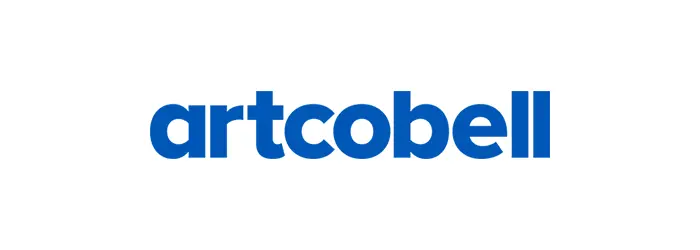
|
 | 1 LU |

|
 | 1 LU |
As the educational landscape continues to evolve rapidly, teachers are increasingly finding themselves in new and innovative flexible learning environments. These modern classrooms demand versatile and adaptive educators who can effectively connect the dots between teaching practices and the demands of digital-age learning. This presentation aims to explore the importance of professional learning opportunities to empower teachers to navigate and thrive in these new educational settings.
The panelists will delve into the importance of offering continuous support and guidance throughout the entire transformation process, starting from the planning phase and extending to post-occupancy. This approach aims to equip educators with the essential skills and knowledge to wholeheartedly embrace the changes in educational spaces.
Moreover, attendees will have the opportunity to learn about the inspiring success story of Kirby School District 140. The district's remarkable transformation of student learning experiences will be highlighted, focusing on how they fostered continuous professional growth among teachers. This emphasis on growth enabled educators to cultivate adaptability and resilience, empowering them to navigate the ever-changing educational landscape successfully.
Learning Objectives:

Rachel is an architect and educational planner at Perkins&Will in Chicago, IL, USA, who specializes in educational and institutional design. They are a graduate of the University of Oulu's Education and Globalization Master's Programme. Their Master's thesis, Leveraging Architecture and Education: Approaching the Facilitation of Good Learning Environments in Authentic and Emerging Contexts won the 2017 FERA award for Best Master's Thesis in Education. Their undergraduate thesis in Architecture from Virginia Tech, Trust and Choice in the Third Place: A Student Center in Beckley, West Virginia, has also won various interdisciplinary research awards. Besides practicing architecture, Rachel runs learning environment design workshops for architects, educators, and professionals in related fields, as well as university students in each of those fields. Much of their volunteer work is centered around design learning in K-12 schools.
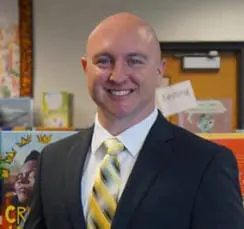
Dr. Callaghan has served the Kirby School District 140 community as a teacher and administrator for the past 20 years. He began his teaching career in 2003 and moved into the role of Assistant Principal, Principal, and Director of Curriculum and Instruction before assuming the role of Superintendent. He has provided leadership in developing educational programs and services, building operations, financial planning, communications, and technology integration. He has also served on several district-wide committees to enhance instruction, improve student engagement, and provide professional development and training. Dr. Callaghan holds a Doctorate of Educational Leadership degree from the University of St. Francis, a master's degree in School Administration from Governors State University, and a bachelor's degree in Elementary Education from Trinity Christian College.
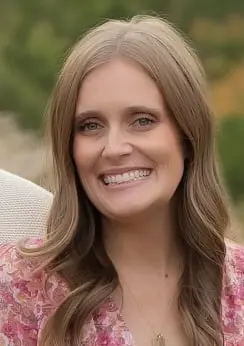
Ashley is in her 15th year as a 2nd grade teacher at Kirby School District 140. Ashley's innovative approach to learning spaces transformed her classroom into the district's first flexible learning environment nearly a decade ago. Instantly, she recognized the transformative impact of this approach on elevating student engagement, fostering collaborative learning, and nurturing a strong classroom community. Ashley is not only an advocate for flexible learning environments but also an active participant in the district's ongoing initiative to convert traditional classrooms into dynamic, adaptable spaces that cater to the diverse learning needs of students.
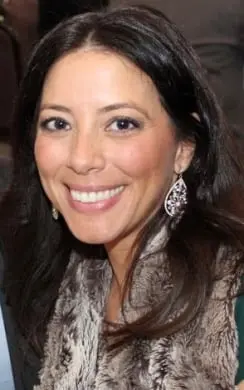
With a rich 25-year history as a 4th grade educator at Kirby School District 140, you'll find Felicia at the heart of transformative teaching. Her journey took an exciting turn in 2013 when she embraced flexible seating, a decision that opened the door to a host of advantages. From amplifying student engagement and fostering better classroom behavior to nurturing a genuine sense of ownership among her students, Felicia's approach is a testament to the power of adaptability. In 2018, Felicia's expertise caught the attention of the district, leading her to be selected as one of three educators entrusted with piloting flexible seating alongside upgraded furniture. Reflecting on her path, Felicia emphatically states that she has forever left behind the confines of traditional seating, with her sights firmly set on creating dynamic and engaging learning spaces.
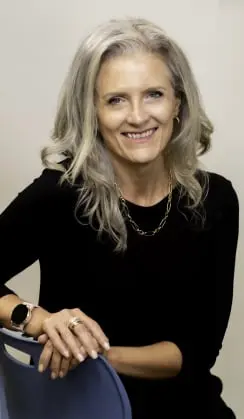
Patricia is driven by an unwavering dedication to student learning. Her mission is to assist schools in connecting the dots between teaching, student learning and the environment, may it be the classroom, commons areas, and media centers, anywhere students can learn. Patricia's 28 years of experience in public education gives her a unique perspective on how the design of a classroom can enhance student engagement and achievement. Her focus at Artcobell is developing programs virtually and in person to help schools and designers on their journey to transform learning. From conceptual, to design, to post occupancy training, her passion is to bring the vision together.
This track focuses on Resiliency and addresses how learning environments support the development of students and communities that have the strength and flexibility to withstand adversity and adapt to change. The COVID-19 pandemic demonstrated the essential role that schools have in stabilizing communities during a time of crisis. How do schools support the development of strong community culture among teachers and students? How do schools foster physical and mental health and wellness to ensure all are ready and supported to learn? How do we create learning environments that are strong in intent yet adaptable to change? How do we learn from what does not work and further, learn to take risks daily to expand our comfort zone? What can we learn from research and our responses to past events to inform how to build toward a resilient future where we can withstand what crises and challenges the future brings? Topic areas, seen through the lenses of both Art and Science, include sustainability, physical and mental health, community, school climate and culture, safety, and security.
Primary Core Competency
Assessment of the School Facility: The ability to objectively evaluate a learning environment post occupancy and utilize that data to improve future projects. Implements a plan for educational commissioning that provides guidance on how to use and maximize the learning environment to meet the foundational vision established in the planning phase.